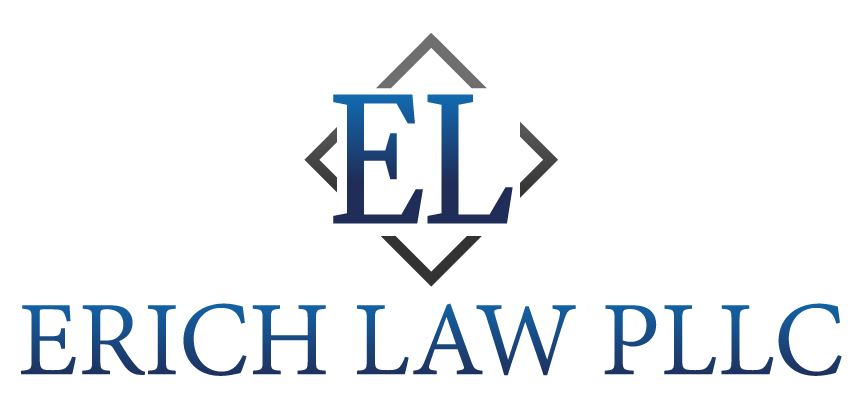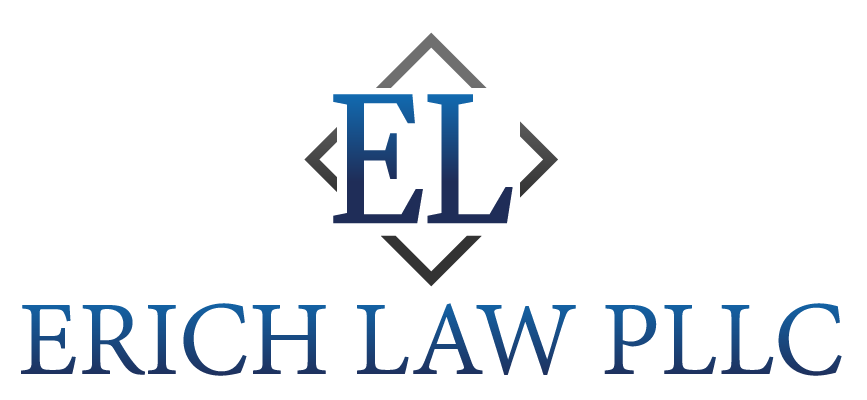Crafting a Comprehensive Estate Plan: Key Elements to Safeguard Your Legacy
INTRODUCTION
At Erich Law, we understand the importance of securing and safeguarding your legacy through a well-crafted estate plan. The attorneys at Erich Law specialize in estate planning, a practice area spanning diverse areas of the law as well as other disciplines, such as: business management, real estate transactions, investment planning, special needs planning, and tax considerations. Our Founder, Attorney Chris Erich, has developed criteria and terminology to define two key characteristics of a well-crafted estate plan. Chris believes that an estate plan is well-crafted when it is both comprehensive and contemplative.
While each matter is unique, it is safe to say that a “comprehensive” estate plan is a suite of documents and directives that work together to realize a set of common goals, such as: ensuring that your end-of-life choices are respected, your loved ones are provided for in your absence, and your assets are distributed according to your wishes.
Meanwhile, a “contemplative” estate plan is a carefully and thoughtfully constructed plan that is unique to your present situation, values, and goals, but also plans for as many potential future contingencies as possible. While the documents forming the estate plan are essentially “static,” in that the language of the documents will not change (unless you subsequently amend it), a contemplative estate plan is forward-looking and predictive. With the help of Erich Law’s experienced and capable attorneys and a clear understanding of your wishes, values, and goals, we will craft an estate plan that anticipates certain changes, such as changes to your financial situation or health, changes to your beneficiaries’ financial situations or health, or changes to the laws governing inheritance, and attempts to mitigate any deleterious effects of such changes, so that your plan still comes to fruition.
Planning for the future is the essence of the estate planning process. In this blog post, Attorney Chris Erich identifies eight key elements common to most comprehensive estate plans, in an effort to guide you through and demystify the process of protecting what matters most—your loved ones and family!
COMMON ELEMENTS OF COMPREHENSIVE ESTATE PLANS
1. Last Will and Testament:
Every estate plan should start with a Last Will and Testament. This legal document contains guidance and instructions your executor (or “personal representative,” depending on jurisdiction) must follow during the distribution of your assets after your passing. Our experienced estate planning attorneys can assist you in drafting a comprehensive will that covers all aspects of your estate.
2. Living Will and Advance Healthcare Directive:
These documents address your medical care preferences in case you become unable to communicate them to your healthcare providers. A Living Will specifies the type of medical treatment you want or do not want, while an Advance Healthcare Directive (or “Designation of Healthcare Surrogate” or “Power of Attorney for Healthcare”) designates someone to make healthcare decisions on your behalf only while you are unable to make these decisions yourself.
3. Revocable (Living) Trust:
A Revocable Trust (also called a “Living Trust”) allows you to continue to enjoy, manage, and distribute your assets while you are alive. Upon your death, the Trust becomes irrevocable and the successor Trustee you named will continue to administer the trust assets by following the instructions you set forth in the trust instrument itself. This ensures a smooth transition and facilitates distributions of your estate to your beneficiaries without the time and expense of going through the probate process. A Revocable Trust can be an enormously valuable tool in ensuring privacy and efficiency in asset distribution.
4. Financial Power of Attorney:
Designating a trusted individual as your “Attorney-in-Fact” or “Agent” grants them the authority to make financial decisions on your behalf if you become incapacitated. This ensures that someone you trust manages your financial affairs according to your preferences while you are unable to do so yourself.
5. Beneficiary Designations:
An often overlooked, but crucial, element of every estate plan is something that is entirely within your control. Review and update beneficiary designations on your insurance policies, retirement accounts, and other financial assets regularly. Keeping these designations current is crucial to ensure your assets bypass the probate process and pass smoothly to your chosen beneficiaries.
6. Guardianship Designations:
For parents of minor children, designating a “pre-need” guardian is perhaps the most important aspect of estate planning. This ensures that your children are cared for by someone you trust in the event neither parent is able to do so.
7. Business Succession Planning:
If you own a business, it is essential to plan for its future in your estate plan. This may involve determining who will take over the business or outlining a strategy for its sale. Whether it’s determining a successor or outlining a strategic sale, our attorneys offer valuable insights.
8. Tax Planning:
Work with our estate planning experts to minimize the tax implications on your estate. Strategic planning with our attorneys can help reduce the tax burden on your beneficiaries, allow your beneficiaries with special needs to continue to receive benefits, and preserve more of your wealth for the benefit of your beneficiaries.
CONCLUSION
At Erich Law, we recognize the unique aspects of each client’s situation and tailor estate plans to meet each client’s individual needs. Planning for the future is an investment in peace of mind for you and security for your loved ones. Contact our experienced estate planning attorneys to start crafting a comprehensive estate plan that will safeguard your legacy for generations to come.




Comments are closed